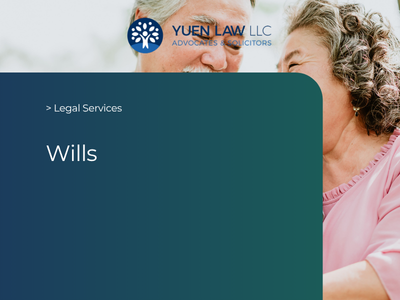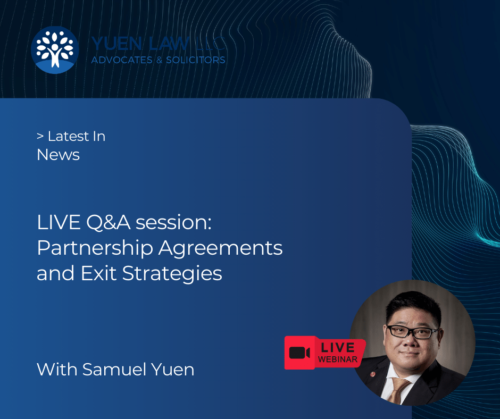A sole proprietorship is the simplest business legal entity. It has the least requirements to set up and maintain with the regulatory authorities, and it is seen as beneficial to small businesses.
There is no separation between the business entity and the owner e.g. John Tan the sole proprietor of John’s Cake Shop is one and the same. This means that the assets i.e. bank accounts, property, stock-in-trade, goodwill, as well as liabilities of the business belong to John Tan.
A sole proprietor is a business owned by one person and has these features:-
- Sole proprietor has unlimited liability and is personally liable for debts and losses of business;
- Sole proprietor can sue or be sued in his own name;
- Sole proprietor can own property if individual has legal capacity.
A sole proprietorship exists as long as the owner is alive. What happens after the sole proprietor dies?
The short answer is that whatever he owns as a business sole proprietor is treated as his personal assets and will be distributed according to his/her Will or under the rules of intestacy. This means the business assets that can be transferred will be passed on to the deceased sole proprietor’s beneficiaries under the law e.g. cash in bank, fully paid up equipment. If the sole proprietor was a tenant it would be important to look at the tenancy agreement and it would usually mean the tenancy ends.
What will happen to the Assets and Debts of the Sole Proprietor?
| Type | How the Assets or Debts will be handled |
Assets |
Subject to the wishes of the beneficiaries, the executor or administrator of the sole proprietor’s estate may sell the assets of the sole proprietorship to one of the family members. A beneficiary who buys the business and its assets may choose to continue with the business under his own name. Likewise, he may elect to sell the business to another family member, employ someone else to operate it for him or take up a partner for the business. |
Debt |
Where the business has debts, the executor/administrator may have no choice but to liquidate all assets of the business to meet any debt incurred by the business. If you are a sole proprietor, you should do a will to have a smooth transition of the business whether it is a sale or distribution. |





